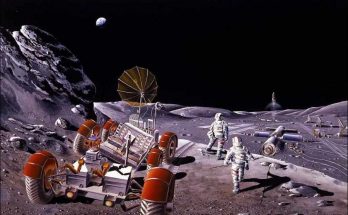A group of scientists from Harvard University suggested that the mass of the Higgs boson could change. The researchers stated that this situation will prepare the destruction of the universe by interacting with a quantum particle and a black hole, and explained that the demolition process may have started. Physicists also stated that the Higgs decay, also known as the God particle, may cause the cosmos to disappear, giving mass to all matter in the universe.
A group of scientists from Harvard University in the US suggested that the universe could suddenly disappear as the negative energy bubble bursting by the Higgs boson exploded. The slow death of its ever-expanding universe was previously introduced in the Standard Model of Particle Physics, which was used by scientists to explain the basic building blocks of matter.
In this model, it has been suggested that a force called dark energy under the cosmos accelerates the expansion of the universe, which will continue until it slips into a completely cold, sloppy cliff. However, new research predicts that the end of the universe will not come slowly, but with a sudden explosion in 10 * 139 (billions of years) years.
The mass of the Higgs boson, which has been theorized since the 1970s and discovered in the 2012 Great Hadron Collision experiment, is believed to be 125 gigaelectronvolts [GeV], a measure of energy used in particle accelerator physics. However, according to laws that explain the interaction of subatomic particles of its universe, the mass of matter may not always remain constant.
In the study conducted by Harvard University theorists, it was stated that the mass of the Higgs boson will also change one day. When the values of this quantum particle, which constitutes the mass of all the matter in the universe, it is revealed that all the processes that make life possible can be disrupted.
On the other hand, it was stated that this would create a balloon of negative energy that would destroy all known laws of physics, and it was pointed out that this balloon would expand continuously until it covered the entire universe. “We want to correct previous estimates as much as possible and create as much concrete data as possible on the date when the universe will perish,” said researcher Anders Andreasson.
Views: 631



